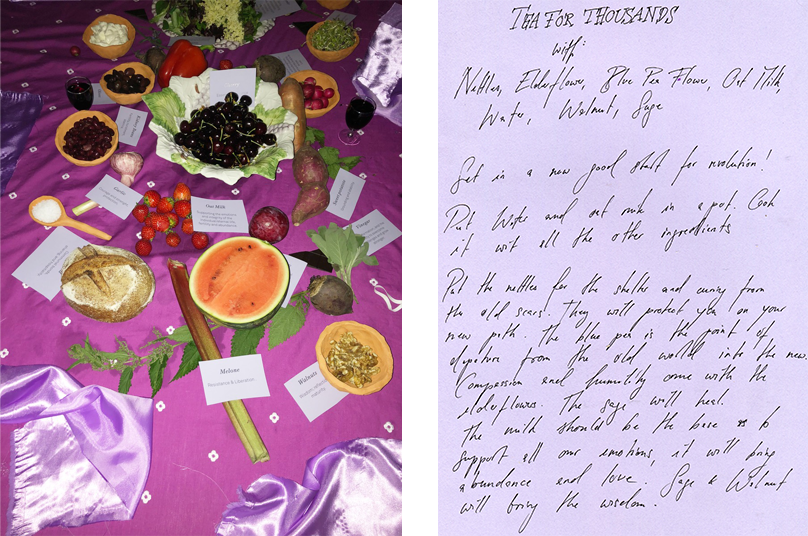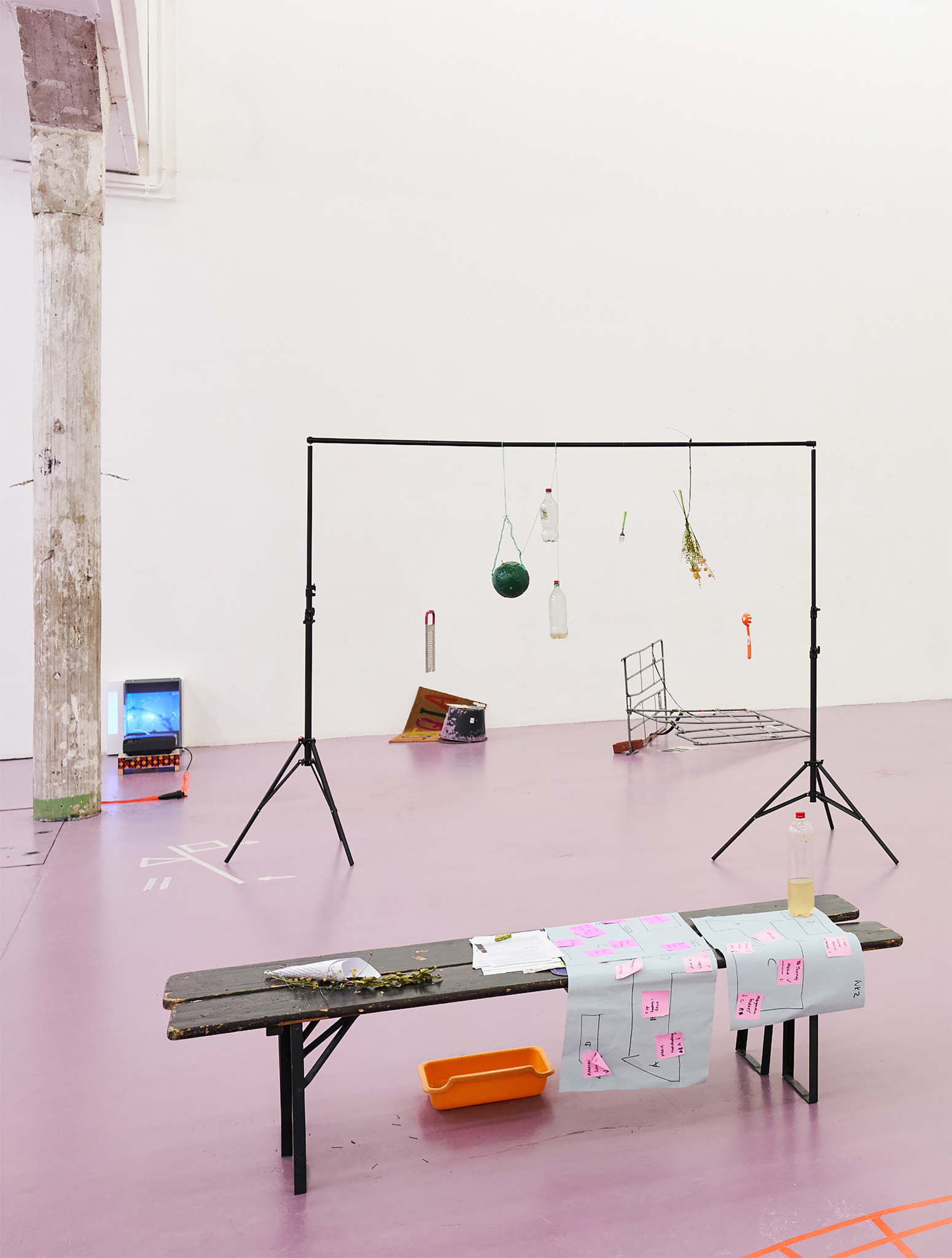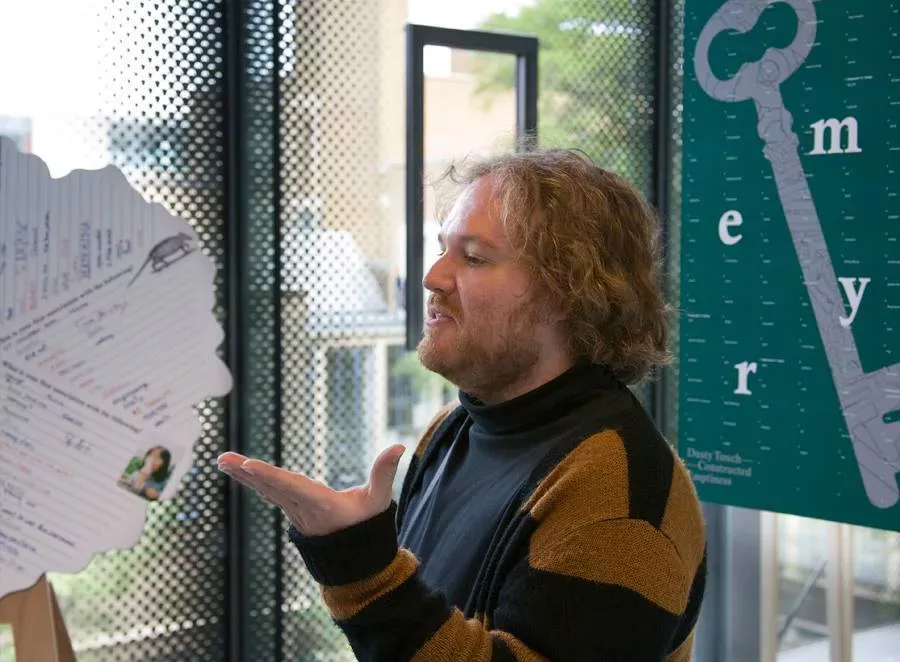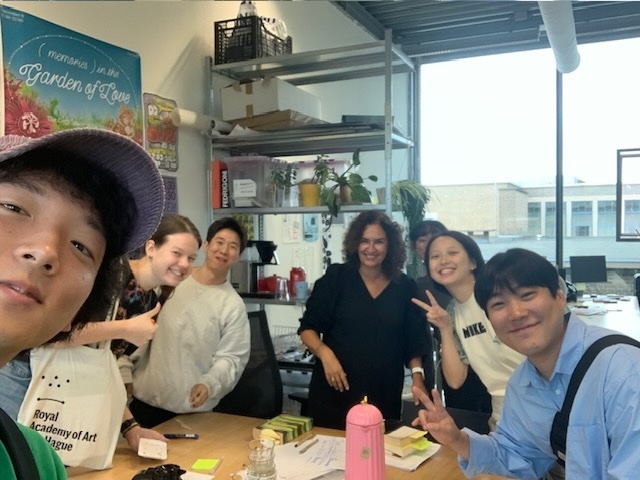PRESENTATION - Politics of Knowledge
research group Lectorate Art Theory and Practice at the KABK 2023/24
This Politics of Knowledge, is a research group with Research Lectorate Art Theory and Practice headed by Prof. Dr. Anke Haarmann.
They showed their final presentation during two events:
On Friday, 27th of September, in the KABK in the form of a live radio show.
On Sunday, 29th of September, at Framer Framed in Amsterdam.
Context
There is an urgency for critical thinking and making. Artistic research is well placed to address this need. Though creative practices are gradually becoming more accepted as producers of knowledge, they are still undervalued and underutilized in a broader disciplinary context. As main actors in artistic research, we, at KABK, need to ask questions regarding the connection between truth and power, politics and knowledge, exclusion and inclusion.
Research Group
KABK employers are part of an institution that is both unusual (artistic) and ordinary
(state). Politics of Knowledge will question and test alternative knowledge production and research approaches. Projects will be discussed and developed, texts will be read, speakers will be invited and public presentations will be made. We also plan to collaborate with various political and scientific institutions in The Hague.
Research Lector: Prof. Dr. Anke Haarmann (she/her)
Coordinator: Leon Lapa Pereira (he/him)
Website: www.lectoraatktp.nl
Email: lectoraatktp@kabk.nl
Available Monday, Tuesday and Thursday, BB.115
Participating Members and their Context
Participating Members:
- Sophie Allerding
- Elisabeth Rafstedt
- Johanna Ehde
- Tatjana Macic
- Eric Kluitenberg
- Ingrid Grünwald
- Maarten Cornel
- Zuzanna Zgierska
LARP, an acronym for live-action role-play, is a form of participatory media, collaborative world-building, or a simulation model of a temporary society. In LARP, players temporarily embody fictional characters, feeling what they feel, thinking as they would think, and acting as they would act. Much like sacred play in ancient traditions, LARPing becomes a vessel for producing knowledge. Just as the oracle speaks in riddles, LARP reveals truths not through concrete facts but through embodied experiences that challenge the notion of one’s own experience as universal. In my research, I have explored the challenges of accessibility and documentation for the knowledge produced through LARPing, and ways to preserve and share the prophecies of alternative realities.

Rietlanden Women’s Office
Rietlanden Women’s Office (rietlanden.womensoffice.nl) teaches Typography in the Graphic Design Bachelor and are also visiting tutors in Book Design at the Master Artistic Research.
TBA
On Assemblage
What you are holding in your hands now is an assemblage in an assemblage, a multiplicity of assemblages emerging from the heterogeneity of my artistic practice…
Taking my exhibition Leftovers at W139 in 2023 as a departure point, I aim to reflect upon my intuitive, artistic practice as a meta-author and situate it in the broader context using theoretical and auto-ethnographic methods. I focus on philosophical, spatial, ecological, spiritual and artistic propositions connected to exhibition-making and assemblage in the Deleuzian sense. Assemblage, from the Middle French “assembler"- to bring together, is a dynamic constellation and involves constantly transforming heterogeneous elements. Assemblage is not a static structure but a fluid network of relationships between people, objects, ideas, and more, assembled temporarily to produce new forms, meanings and possibilities.

TBA
The Dialogue as a Research Method
The essay by Maarten Cornel investigates what philosophical aspects could to be considered in preparing a dialogue session. Next to that, it reflects on the different methods that have been tested during the research and earlier sessions at the graphic design department of KABK and other European institutions. One of the central terms is the ‘Parrhesia’ having the courage to speak your truth openly. What are preconditions that need to be considered in stimulating and facilitating this? And how can the shifting dynamics of a dialogue contribute to group and community building? People have moods and experiences and bring that to a dialogue, and these predispositions should be taken into account and can even be a motivation for collective analysis and development. The form of a dialogue also should be considered in relation to the subject(s) at hand.

Beyond Language
Ingrid Grünwald wrote a manifest to create awareness about the use of the English language in an international Art Academy. Can we find connection in silence, how important are our listening skills? Where is the space to connect? Are we aware that the language we grew up in is part of the perception of our world? How do we create meaning in communication. How are we dealing with closed and open networks? Are we allowed to use our own language even if this is according to the colonial cannon not a "proper" language (pidginization)? On all these topics Ingrid brings to the table examples from literature and her 6 years of English Clubs in the Graphic Design Department. This research is part of the Dialogue as Research Method.

TBA